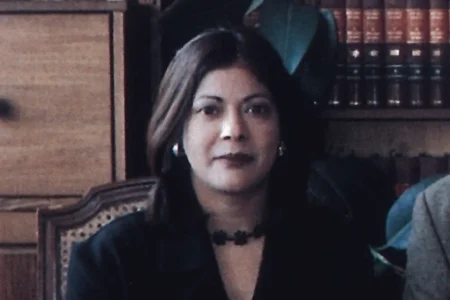In the tapestry of South African legal history, few figures stand out as brightly as Halima Khanam Saldulker. Born on 6 February 1957, she rose to become one of the country’s most respected and impactful judges, making history and setting an example for generations of legal professionals to come. Her story is not just one of personal success but of perseverance, resilience, and a relentless dedication to justice.
Early Life and Education of Halima Khanam Saldulker: Foundations of a Legal Luminary
Halima Khanam Saldulker’s journey began in Durban, KwaZulu-Natal (formerly Natal Province). Her upbringing was shaped by the socio-political environment of apartheid-era South Africa, which made her achievements all the more remarkable.
Halima Khanam Saldulker attended Juma Musjid Girls School, situated near the iconic Durban Juma Mosque, a place that likely imbued her with a strong sense of community and purpose. In 1974, she matriculated from Durban Indian High School, marking the end of her formative education and the start of her remarkable academic journey.
Saldulker’s passion for learning led her to the University of Durban-Westville, where she completed her Bachelor of Arts (BA) degree in 1977. But it was her pursuit of a Bachelor of Laws (LLB) in 1979 that laid the cornerstone of her legal career. During this period, Saldulker honed her analytical skills and deepened her understanding of the legal system—a foundation she would later use to influence South Africa’s legal landscape.
Early Career: Breaking into the Legal World
After completing her education, Saldulker initially worked in the insurance industry, gaining experience in the intricacies of legal frameworks. It wasn’t long before her ambitions grew, and she set her sights on the courtroom. In 1988, Halima Khanam Saldulker was admitted to the prestigious Johannesburg Bar, a watershed moment in her career.
For the next sixteen years, Saldulker practiced as an advocate, representing clients with the tenacity and legal acumen that would define her later work. Her skills didn’t go unnoticed, and she soon became an active member of the General Council of the Bar.
Between 1997 and 2001, Halima Khanam Saldulker served as secretary and honorary assistant secretary, marking her as a key figure in South African legal circles. Her role on the Legal Aid Board from 1998 to 2004 further underscored her commitment to ensuring that justice was accessible to all, particularly those who could not afford legal representation.
Judicial Career: A Trailblazer on the Bench
Saldulker’s exemplary legal career took a historic turn in July 2004, when she was appointed as a judge in the Transvaal High Court (now known as the Gauteng High Court). Appointed by President Thabo Mbeki upon the recommendation of the Judicial Service Commission, this was a monumental achievement for a woman of color in a field that had long been dominated by men.
Her appointment was a recognition of her expertise and a reflection of the changing times in South Africa. By August 1, 2004, Halima Khanam Saldulker had taken her seat on the bench, beginning what would become an illustrious judicial career.
For nine years, Saldulker served with distinction in the South Gauteng Division, making decisions that would shape the lives of many and set important legal precedents. Her dedication, impartiality, and unwavering commitment to justice solidified her reputation as one of South Africa’s most respected judges.
Supreme Court of Appeal: A Higher Calling
In July 2013, Saldulker’s judicial journey reached new heights when she was appointed to the Supreme Court of Appeal by then-President Jacob Zuma. This promotion was a testament to her extraordinary legal mind and her years of dedicated service. While her ascension to the Supreme Court was a proud moment, it did not come without its challenges. The appointment process was overshadowed by controversies, particularly around fellow contender Clive Plasket, but Saldulker’s professionalism and excellence shone through.
As a judge in the Supreme Court of Appeal, Saldulker has continued to shape South African law, presiding over complex cases with fairness and clarity. Her decisions resonate beyond the courtroom, influencing the broader legal system and reflecting the values of democracy, equity, and justice that she holds dear.
Also Read:Devinder Shory: Champion of Integrity in Law, Politics, and Community Service
